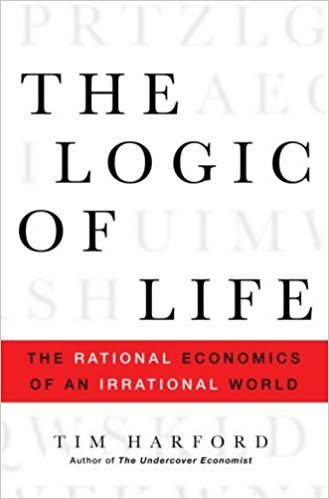What do you think?
Rate this book


272 pages, Kindle Edition
First published January 1, 2008
I heard Tim Harford on Start the Week a month or three back - I can't remember what he said now but it was interesting enough for me to order his book from the library. When the book turned up I wasn't convinced that I was going to find it that enthralling but I ended up loving it.
This is all about how the world is shaped by pretty much everyone making rational choices about the world around them and yet we end up with some things, like rough neighbourhoods or overpaid bosses, that don't appear to arise out of logic at all. The author is an economist applying the mix of mathematics and observation that's usually applied to finance to all kinds of other areas.
The book is nicely structured. It's one of those books where each time the subject changes I think the new subject won't be as interesting as the last one but each time I'm wrong.
I'll be looking out for Harford's first book "The Undercover Economist" now.